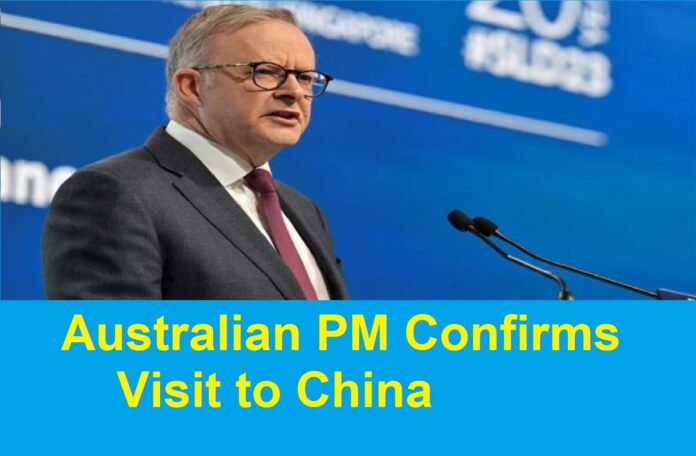In a world where diplomacy and communication play pivotal roles in international relations, Australian Prime Minister Anthony Albanese’s recent confirmation of his visit to China marks a significant step towards strengthening ties between two major players on the global stage. The topic at hand emphasizes the importance of dialogue in international diplomacy and how it can impact trade, politics, and human rights. In this article, we will delve into the details of this historic visit, its implications, and the broader context surrounding it.
A Stepping Stone Towards Unimpeded Trade
Australia and China have been working diligently to restore “unimpeded trade” between them. During a regional summit in Indonesia, Prime Minister Albanese expressed his optimism about the progress made in this regard. He highlighted the mutual benefits that both nations reap from reestablishing seamless trade relations. It’s a testament to the power of dialogue in mending economic ties.
A Tale of Differing Perspectives
While the aspirations for unhindered trade are clear, it’s essential to recognize that Australia’s views won’t always align perfectly with China’s. However, what sets this diplomatic exchange apart is the acknowledgment that dialogue is the linchpin holding the relationship together. Understanding the importance of dialogue despite differences is a hallmark of mature diplomacy.
A Historic Visit in the Making
Prime Minister Albanese welcomed the invitation from Chinese Premier Li Qiang to visit China later this year. This visit carries special significance as it marks the 50th anniversary of Prime Minister Whitlam’s groundbreaking visit to communist China in 1973. Such historical references add depth to the relationship and underscore the importance of maintaining open lines of communication.
Thawing Relations: A Diplomatic Milestone
This confirmation is monumental for several reasons. It represents the first visit by an Australian leader to China, its largest trading partner, since 2016. This event is a significant stride towards stabilizing diplomatic relations between the two nations. It signals a willingness to put past disagreements aside and focus on a more constructive future.
Navigating the Rough Waters
The year 2020 witnessed a freeze in diplomatic exchanges between Australia and China due to the latter’s imposition of curbs on a dozen Australian exports. This was in response to Australia’s call for an investigation into the origins of the COVID-19 pandemic. However, since the election of a Labor government in Australia in 2022, tensions have eased. Notably, China has lifted tariffs on Australian barley exports, though Australia continues to seek relief for other exports like wine and lobster.
Australia’s Economic Lighthouse: Iron Ore
Iron ore sales to China represent Australia’s most substantial export sector. Treasurer Jim Chalmers has pointed out that any slowdown in China’s economy would exert added pressure on Australia’s economic landscape. The discussion on this front during the meeting between Albanese and Li focused on China’s economic outlook, with Premier Li expressing positivity.
Human Rights on the Table
Prime Minister Albanese did not shy away from addressing human rights concerns during his discussions with Premier Li. He brought up the cases of two detained Australian journalists, Cheng Lei and Yang Hengjun, expressing the Australian people’s desire to see Cheng Lei reunited with her children. This inclusion of human rights issues in diplomatic dialogue underscores the multifaceted nature of international relations.
The Bigger Picture: A Peaceful and Prosperous Region
The overarching theme of the meeting was the shared interest of all nations in a “peaceful, secure, and prosperous region.” Beyond economic interests, it’s a reminder that stability in the Asia-Pacific region hinges on cooperative efforts and open communication among nations, irrespective of their differences.
Strengthening Ties with the Philippines
Following his visit to China, Prime Minister Albanese is set to travel to the Philippines, marking the first bilateral visit by an Australian leader in two decades. This visit assumes added significance in light of renewed tensions between the Philippines and China in the South China Sea. Prime Minister Albanese emphasized the critical nature of the Philippines in Australia’s interests, particularly noting their robust defense ties.
United Front: Joint Navy Patrols
Australia’s commitment to its relationship with the Philippines was evident when it conducted military exercises near the South China Sea in partnership with the Philippines. Furthermore, plans for joint navy patrols were announced. These actions demonstrate Australia’s dedication to supporting regional allies and maintaining security in the Asia-Pacific region.


